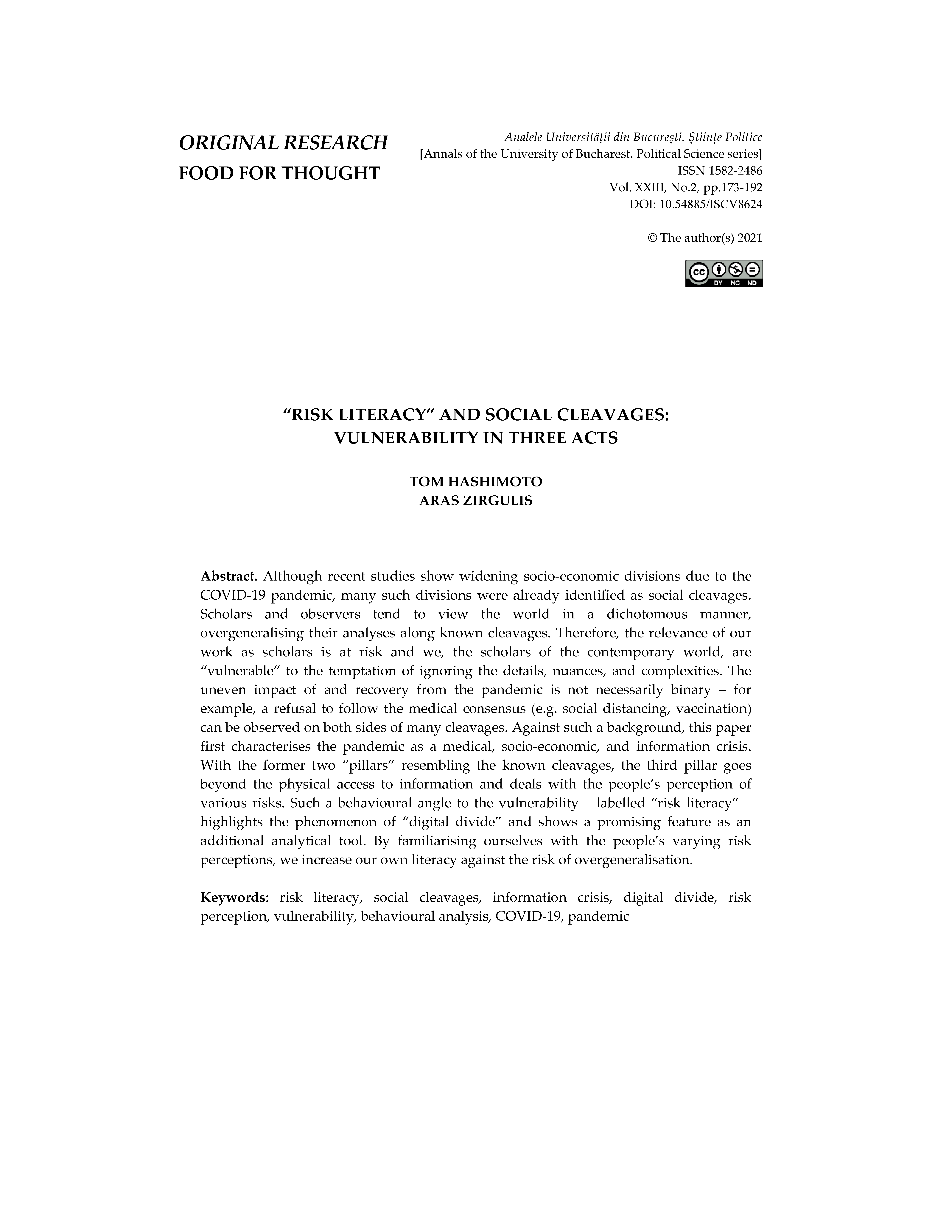“RISK LITERACY” AND SOCIAL CLEAVAGES: VULNERABILITY IN THREE ACTS
DOI:
https://doi.org/10.54885/ISCV8624Cuvinte cheie:
risk literacy, social cleavages, information crisis, digital divide, risk perception, vulnerability, behavioural analysis, COVID-19, pandemicRezumat
Although recent studies show widening socio-economic divisions due to the COVID-19 pandemic, many such divisions were already identified as social cleavages. Scholars and observers tend to view the world in a dichotomous manner, overgeneralising their analyses along known cleavages. Therefore, the relevance of our work as scholars is at risk and we, the scholars of the contemporary world, are “vulnerable” to the temptation of ignoring the details, nuances, and complexities. The uneven impact of and recovery from the pandemic is not necessarily binary – for example, a refusal to follow the medical consensus (e.g. social distancing, vaccination) can be observed on both sides of many cleavages. Against such a background, this paper first characterises the pandemic as a medical, socio-economic, and information crisis. With the former two “pillars” resembling the known cleavages, the third pillar goes beyond the physical access to information and deals with the people’s perception of various risks. Such a behavioural angle to the vulnerability – labelled “risk literacy” – highlights the phenomenon of “digital divide” and shows a promising feature as an additional analytical tool. By familiarising ourselves with the people’s varying risk
perceptions, we increase our own literacy against the risk of overgeneralisation.




